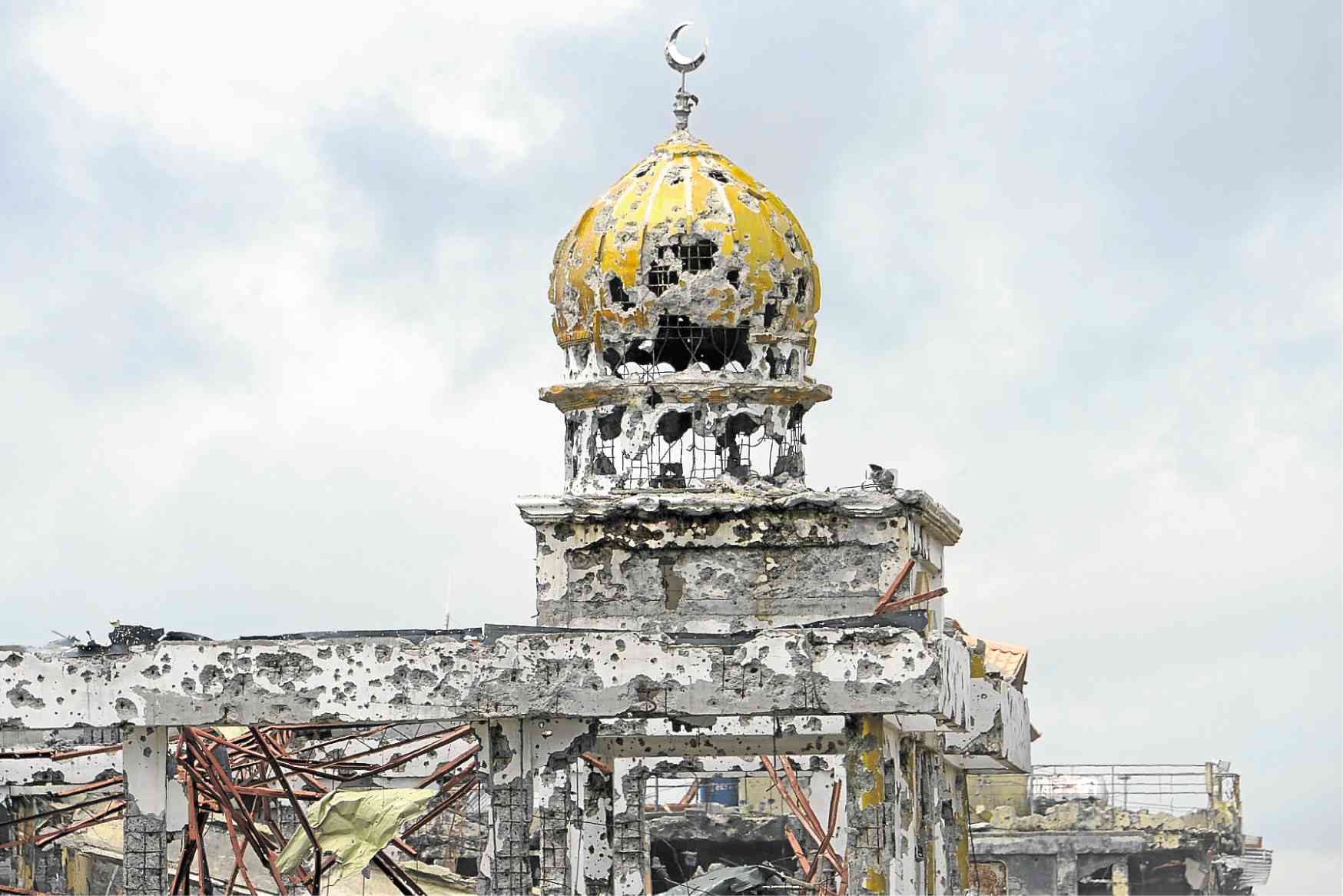Marawi siege a failure to read signs, not due to absence of anti-terror law — Maranao leaders

A bombed-out mosque stands in what was once the scene of intense fighting between government troops and Islamic State supporters in Marawi City. 2017 AFP file photo
ILIGAN CITY — The massive push by government to enact into law the now controversial anti-terrorism bill has taken it to using the Marawi siege as one of its justifications, rubbing salt to the Maranao people’s wounds over the destruction of the city in 2017.
The siege on Marawi by Islamic State (IS) militants ran from May 23 to October 23, 2017, destroying the city’s main commercial district and displaced thousands of families.
On Thursday, June 25, Sen. Panfilo Lacson told an online forum of the League of Provinces of the Philippines that the Marawi siege would not have happened if the proposed Anti-Terrorism Act that Congress recently passed were already in place that time.
Lacson is the principal author of the measure in the Senate which was simply adopted by the House of Representatives in the rush to have it legislated early this month.
The measure is now an enrolled bill, awaiting the signature of President Duterte to make it law. The bill has been widely criticized for containing provisions that compromise civil liberties and its potential for abuse by authorities.
Article continues after this advertisementDisputing Lacson, Maranao leaders said it was not the absence of an anti-terror law that allowed militants to lay siege on Marawi but the failure by authorities to read signs of the imminent threat.
Article continues after this advertisement“The Marawi siege happened because the government underestimated the capacity of the combined Maute and Abu Sayyaf groups to stage a war none would have expected,” said Bangsamoro parliament member Zia Alonto-Adiong.
“It’s not (even) about a lack of intelligence (gathering), rather, a failure to appreciate what seemed to be a clear and present danger,” Adiong added.
Adiong noted that prior to the siege, the militants, mostly belonging to the Maute Group, staged attacks on the towns of Butig and Piagapo in Lanao del Sur.
“These encounters should have been treated as clear signs that something bad was about to happen,” Adiong said.
‘Wrong accounting of events’
Maranao activist Drieza A. Lininding, chair of the Moro Consensus Group, told the Inquirer that it is “lamentable that Sen. Lacson is justifying the proposed Anti-Terrorism Act based on a wrong accounting of events.”
He challenged Lacson to initiate a Senate inquiry on the Marawi siege to ferret out the truth about the incident in 2017 that led to the destruction of the city’s commercial district.
He also urged government to “first lay bare the chronology of events leading up to the Marawi siege” and stop using it to justify the enactment of “a horrific law.”
In a social media post on Friday, June 26, Lininding wrote a short open letter to Lacson urging for a Senate inquiry on the Marawi siege “so that you and the people will know if an anti-terror law (at that time) would have been helpful.”
Lininding noted that even President Duterte, in a speech in Lumbayanague town in November 2016, warned of a plan by the Maute Group to lay siege on the city, but the military and police failed to take due account of that.
“Now we ask, how many soldiers and policemen were there in Marawi (at that time)? You know they are coming? And there seems to be no preparation? Why?” he asked.
“You have used us, our houses, properties, lives; until now we are still evacuees. You are not yet done using us?”